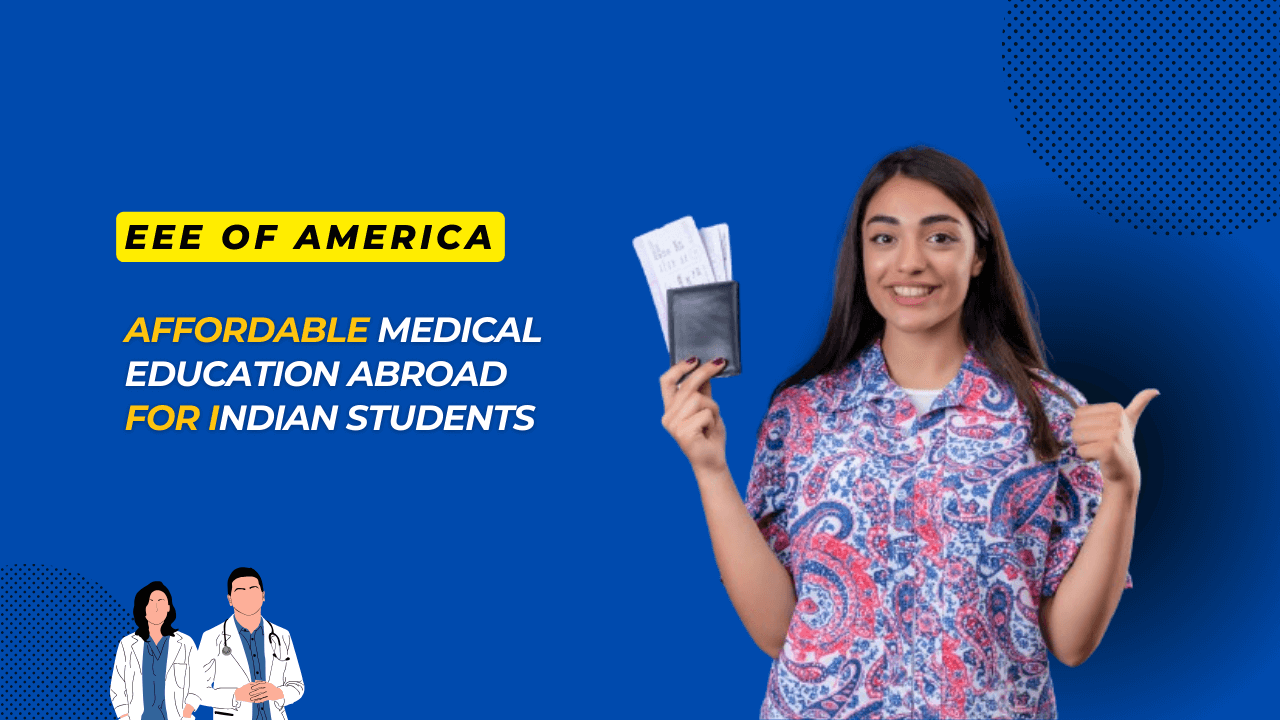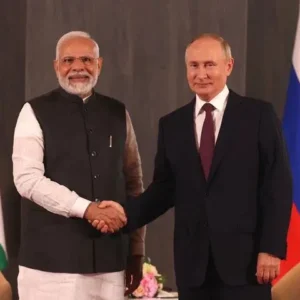In recent years, there has been a notable shift in the landscape of medical education for Indian students, with an increasing trend towards pursuing MBBS degrees abroad. This transformation is primarily fueled by the challenges posed by the National Eligibility-cum-Entrance Test (NEET) UG in India, where the competition for a limited number of seats remains intense. As of 2024, more than 23.99 lakh students registered for NEET UG, competing for approximately 10.88 lakh MBBS seats across 600+ Indian medical colleges.
Reasons for the Shift
The surge in interest towards overseas medical education among Indian students is driven by several factors. Chief among these is the scarcity of seats in Indian medical colleges, which has prompted many qualified students to seek alternative options abroad. Countries like Russia, Ukraine, China, the Philippines, and others have become appealing destinations due to their affordable tuition fees and lower cost of living compared to private medical colleges in India.
Affordable Education Opportunities
For instance, Russia and Ukraine offer English-medium MBBS programs at universities recognized by the World Health Organization (WHO) and the Medical Council of India (MCI). Tuition fees in these countries range from ₹3 to 7 lakhs per year, significantly less than what private medical colleges in India charge.
Similarly, medical universities in China and the Philippines provide competitive programs with tuition fees ranging from ₹3 to 10 lakhs per year, alongside benefits such as diverse patient populations and modern facilities.
Indian students increasingly seek alternatives to the fiercely competitive NEET UG system and limited MBBS seats in Indian medical colleges, overseas education has emerged as a viable solution.
Countries like Russia, Ukraine, China, and the Philippines offer English-medium MBBS programs that are not only affordable but also recognized globally.
Russia and Ukraine:
Russian and Ukrainian universities provide MBBS programs at a fraction of the cost compared to private medical colleges in India. Tuition fees typically range from ₹3 to 7 lakhs per year. These institutions are recognized by esteemed bodies like the World Health Organization (WHO) and the Medical Council of India (MCI), ensuring graduates can practice medicine in India after passing the FMGE.
China:
Medical universities in China are another attractive option, offering MBBS programs with tuition fees ranging from ₹3 to 10 lakhs annually. The curriculum emphasizes practical training and includes opportunities to work in metropolitan hospitals, preparing students for a career in global healthcare.
Philippines:
In the Philippines, MBBS programs are conducted in English, making it accessible for Indian students. Tuition fees are competitive, typically ranging from ₹25 to 40 lakhs for the entire course. The country’s medical education system is aligned with international standards, and graduates are eligible to take the FMGE and practice in India.
Georgia:
Provides European standard medical education at affordable rates with tuition fees ranging from ₹3.7 to 6.66 lakhs per year.
Uzbekistan:
Known for its cost-effective medical education with tuition fees ranging from ₹2.49 to 4.9 lakhs per year.
Kyrgyzstan:
Offers MBBS programs with tuition fees ranging from ₹2.1 to 3.33 lakhs per year, recognized by WHO and MCI.
Kazakhstan:
Balances quality education with affordability, with tuition fees ranging from ₹2.9 to 4.99 lakhs per year.
Benefits Beyond Affordability:
Choosing to study MBBS abroad not only reduces financial burden but also offers cultural diversity and exposure to different healthcare systems. Students gain valuable clinical experience and language proficiency, essential for their professional development in a global context.
Quality Education and Global Recognition
The appeal of studying MBBS abroad lies not only in the affordability but also in the quality of education and global recognition. Many universities in these countries adhere to international standards and offer extensive clinical training opportunities. This prepares Indian students not just for medical practice in India but also for potential career opportunities worldwide. Graduates from accredited universities abroad are eligible to appear for licensing exams such as the Foreign Medical Graduates Examination (FMGE) in India and other global licensing exams.
Cultural Exposure and Language Proficiency
Studying abroad offers students invaluable cultural exposure and enhances their language proficiency, crucial in today’s global healthcare environment. Universities in countries like the Philippines, where English is widely spoken, facilitate seamless communication and integration for international students. This multicultural exposure enhances students’ adaptability and prepares them for diverse patient interactions during their medical training.
Challenges and Considerations
However, pursuing MBBS abroad presents challenges. Students must navigate varying admission requirements, including academic qualifications, language proficiency tests (like IELTS or TOEFL), and sometimes specific entrance examinations.
Moreover, adjusting to a new cultural and educational system can be daunting initially but is often a rewarding experience in the long run.
When considering pursuing MBBS abroad, Indian students face several challenges and considerations that need careful attention:
- Admission Requirements: Each country and university has specific admission criteria that students must meet, including academic qualifications, language proficiency (often tested through exams like IELTS or TOEFL), and sometimes entrance examinations specific to the institution. Navigating these requirements can be complex and requires thorough preparation.
- Cultural Adjustment: Moving to a new country involves adapting to a different cultural and educational system. This adjustment can be daunting initially, impacting social interactions, lifestyle, and academic performance. However, it also offers a unique opportunity for personal growth and cultural immersion.
- Financial Planning: While MBBS programs abroad may have lower tuition fees compared to private medical colleges in India, there are still significant financial considerations. Students must budget for tuition, living expenses, travel costs, health insurance, visa fees, and potentially unforeseen expenses. Scholarships and financial aid options are available in some countries but may be competitive.
- Quality of Education: Ensuring the chosen university and program maintain high educational standards is crucial. Students should research accreditation, affiliations with medical councils (like WHO and MCI), faculty qualifications, infrastructure, and clinical training opportunities. Quality education ensures graduates are well-prepared for medical practice and further licensing examinations.
- Language Proficiency: For non-English speaking countries, proficiency in the local language may be required for clinical interactions and daily life. Universities often offer language courses, but students should be prepared to invest time and effort in language learning to enhance their educational experience and integration into the community.
- Legal and Regulatory Challenges: Understanding the legal frameworks and regulations governing international students and medical practitioners in the chosen country is essential. This includes residency requirements, work permissions during and after studies, and licensing examinations needed to practice medicine both abroad and potentially in India.
- Support Services: Access to support services for international students, such as orientation programs, academic advising, counseling services, and assistance with housing, visas, and legal issues, varies among universities. Choosing a university with robust support systems can ease the transition and enhance the overall student experience.
Future Prospects for Indian Students Pursuing MBBS Abroad
Aspiring doctors are increasingly opting for cost-effective yet high-quality alternatives abroad, leveraging opportunities for global exposure and professional growth.
Looking ahead, the future outlook for Indian students pursuing MBBS abroad is promising yet requires strategic planning and informed decision-making.
Here are some key considerations and projections:
- Continued Demand: The trend of Indian students opting for overseas MBBS education is expected to persist. This is driven by the persistent challenges of limited seats in Indian medical colleges compared to the growing number of NEET UG applicants. The appeal of affordable tuition fees, diverse educational environments, and international recognition of degrees continues to attract students seeking quality medical education.
- Expansion of Destination Choices: As awareness grows about alternative MBBS destinations, more countries are likely to emerge as viable options for Indian students. Beyond traditional choices like Russia, China, and Ukraine, countries in Central Asia, Southeast Asia, and Eastern Europe are becoming increasingly popular due to their competitive fee structures, English-medium programs, and recognition by medical councils.
- Educational Reforms: In response to the increasing demand for medical education, both in India and abroad, educational reforms may shape the landscape. Efforts to expand medical college capacity within India, improve infrastructure, and enhance educational standards could influence students’ decisions. However, until significant reforms alleviate the seat scarcity, overseas education will remain a preferred option for many.
- Professional Integration: Graduates returning from overseas MBBS programs face opportunities and challenges in integrating into the Indian healthcare system. The recognition of foreign degrees by Indian medical councils, such as the Medical Council of India (MCI), and the requirement to pass licensing exams like the FMGE are critical factors. Enhancing these pathways could streamline the integration process for returning graduates.
- Global Career Opportunities: Studying abroad equips students with international perspectives, language skills, and clinical experiences that enhance their employability globally. Many graduates explore career opportunities not only in India but also in countries where their degrees are recognized. This global mobility broadens career prospects and enriches professional development.
- Technological Advancements: The integration of technology in medical education is likely to influence how MBBS programs are delivered abroad. Virtual learning environments, telemedicine, and advancements in healthcare technology are expected to shape curriculum development and clinical training, preparing students for modern medical practice.
- Financial Considerations: Affordability remains a critical factor in decision-making. While studying abroad can be cost-effective compared to private medical colleges in India, students and families must carefully plan finances. Scholarships, grants, and financial aid opportunities play a crucial role in making education abroad accessible to a broader range of students.
Conclusion
In conclusion, the shift towards overseas medical education among Indian students underscores their determination to pursue career aspirations amidst challenges. NEET UG acts as a catalyst, emphasizing the importance of informed decision-making and strategic planning among aspiring medical professionals.
By exploring affordable and accredited options abroad, Indian students not only broaden their educational horizons but also prepare themselves to meet evolving healthcare needs both domestically and globally.




